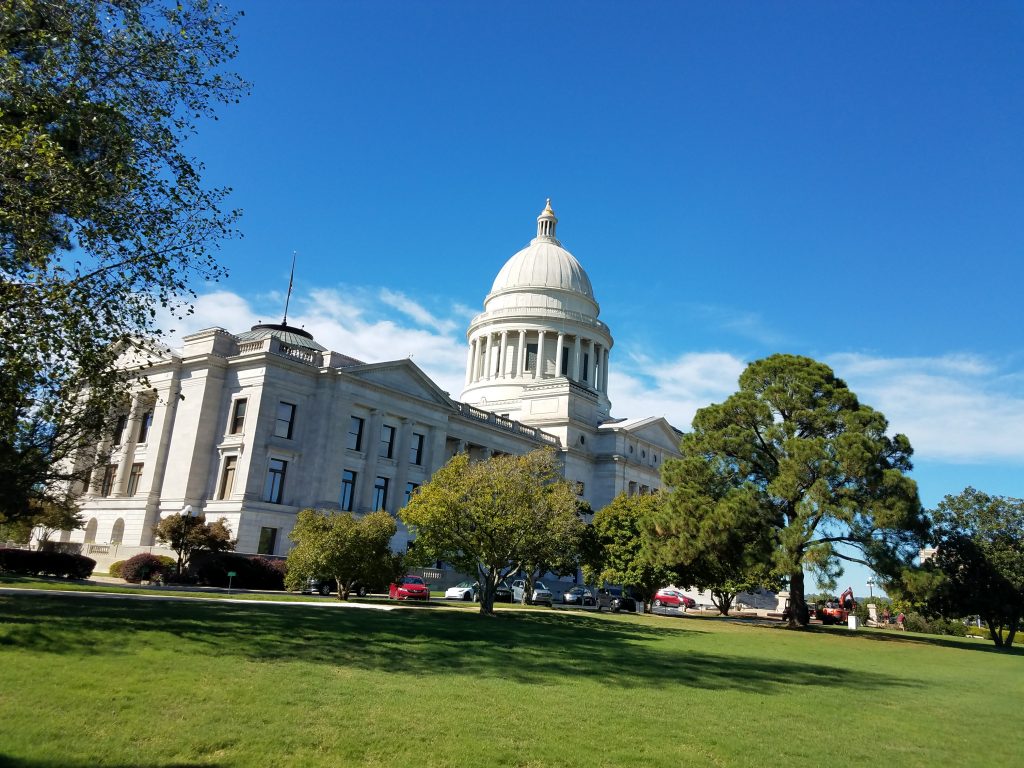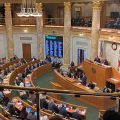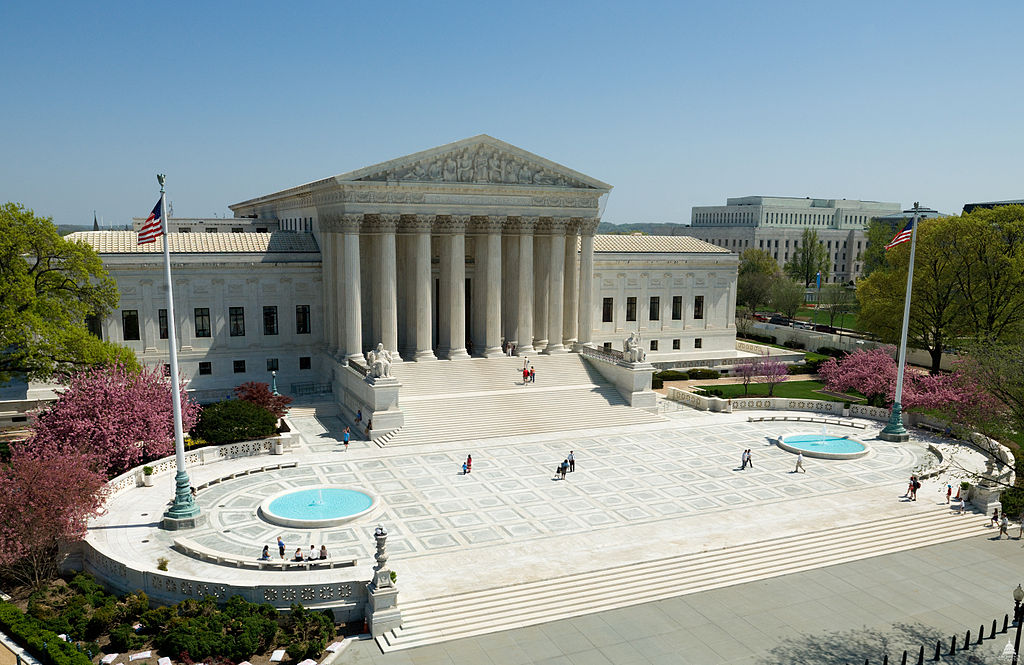
The Arkansas Legislature convened for a special session in Little Rock on Monday.
Below is a brief overview of the legislation that has been filed so far and what each bill would do.
Many of these bills are identical or virtually identical to one another and are sponsored by the same lawmakers — which is why they appear grouped together.
- Income Tax Breaks: S.B. 2, S.B. 8, H.B. 1001, and H.B. 1007 by Sen. Jonathan Dismang and Rep. Les Eaves reducing income tax rates for individuals, trusts, estates, and corporations.
- Amends income taxes for residents, individuals, trusts, and estates whose net income is less than or equal to $87,000.
- Those who earn $0 – $5,099 pay 0% income tax.
- Those who earn $5,100 to $10,299 pay 2% income tax.
- Those who earn $10,300 to $14,699 pay 3% income tax.
- Those who earn $14,700 to $24,299 pay 3.4% income tax.
- Those who earn $24,300 to $87,000 pay 4.4% income tax.
- Amends income tax bracket adjustment amounts for those whose net income is $87,001 – $90,800.
- Amends the tax on corporate net income.
- Amends the tax on net income for foreign corporations doing business in Arkansas.
- Creates income tax credits for individual Arkansas residents whose net income is less than $103,600.
- Creates income tax credits for residents filing a joint tax return whose net income is less than $207,200.
- Amends income taxes for residents, individuals, trusts, and estates whose net income is less than or equal to $87,000.
- Surplus State Funds: S.B. 1 and H.B. 1004 by Sen. Jimmy Hickey and Rep. Lane Jean creating and transferring existing surplus funds for state departments, agencies, and institutions.
- Budgets $710,612,508 for a special sub-fund within the state’s Restricted Reserve Fund
- This money may be used from time to time for general revenue operating funds or fund accounts, the Miscellaneous Agencies Fund Account, and the State Central Services Fund.
- These funds may be transferred upon approval of the Chief Fiscal Officer of the State and a ⅔ vote of the Joint Budget Committee or the Legislative Council committee.
- COVID Mandates: S.B. 3 and H.B. 1002 by Sen. Joshua Bryant and Rep. Howard Beaty prohibiting the government from mandating vaccinations for COVID-19 and its subvariants.
- Prohibits the state and its agencies from coercing individuals in any way for refusing to receive a vaccine or immunization for COVID-19 or its subvariants.
- If a state official determines federal funding requirements make it is necessary for an individual to receive a COVID-19 vaccine, the state official must ask Legislative Council for approval to require the individual to be vaccinated before mandating the vaccine.
- These bills would apply to the state, a state agency or entity, a political subdivision of the state, or a state or local official.
- FOIA: S.B. 7 and H.B. 1003 by Sen. Scott Flippo and Rep. David Ray amending the Freedom of Information Act of 1967.
- Exempts the following from disclosure under the Freedom of Information Act of 1967:
- Communications concerning the security of the Governor’s Mansion and mansion grounds
- Records that reflect the planning or provision of security for the governor, lieutenant governor, attorney general, secretary of state, auditor, treasurer, land commissioner, legislators, supreme court justices, or judges on the court of appeals
- Records revealing the deliberative process of state agencies, state boards, and state commissions. These include:
- Memos and letters within an agency and between agencies, provided that the letter wouldn’t otherwise be available by law.
- Advisory opinions, recommendations, and deliberations that are part of formulating decisions and government policies
- Attorney records prepared as part of representing a public official in a lawsuit.
- Records that are considered confidential under Arkansas Rules of Evidence.
- Requires the Division of Arkansas State Police to submit a quarterly expense report categorizing the Executive Protection Details expenses for the governor’s security.
- Amends the process by which attorney’s fees and other litigation expenses are collected for violating the Freedom of Information Act.
- Exempts the following from disclosure under the Freedom of Information Act of 1967:
- FOIA: S.B. 9 and H.B. 1009 by Sen. Bart Hester and Rep. David Ray amending the Freedom of Information Act of 1967.
- Exempts the following from disclosure under the Freedom of Information Act of 1967:
- Communications concerning the security of the Governor’s Mansion and mansion grounds
- Records that reflect the planning or provision of security for the governor, lieutenant governor, attorney general, secretary of state, auditor, treasurer, land commissioner, legislators, supreme court justices, or judges on the court of appeals
- Attorney records prepared as part of representing a public official in a lawsuit.
- Records reflecting communications between the governor or the governor’s staff and the cabinet secretary of a state department
- Records that are considered confidential under Arkansas Rules of Evidence.
- Requires the Division of Arkansas State Police to submit a quarterly expense report categorizing the Executive Protection Details expenses for the governor’s security.
- Amends the process by which attorney’s fees and other litigation expenses are collected for violating the Freedom of Information Act.
- Exempts the following from disclosure under the Freedom of Information Act of 1967:
- Public School Security: S.B. 4 and H.B. 1005 by Sen. Jane English and Rep. Brian Evans clarifies that public schools are not required to keep all their doors and exits unlocked during school hours.
- Education Funding for Students With Disabilities: S.B. 5 and H.B. 1008 by Sen. Breanne Davis and Rep. Sonia Barker addresses how students with disabilities receive educational services and access to additional funding under the state’s Philanthropic Investment in Arkansas Kids Program Act, the Succeed Scholarship Program, and the Arkansas Children’s Educational Freedom Account Program.
- Felony Sentencing: H.B. 1006 and S.B. 6 by Rep. Jimmy Gazaway and Sen. Ben Gilmore clarifies that criminals convicting of certain egregious felony offenses involving a firearm are not eligible for early release or parole.
Updated at 7:45 AM 9/12/2023 to to include S.B. 9 and H.B. 1009 concerning the Freedom of Information Act of 1967.




